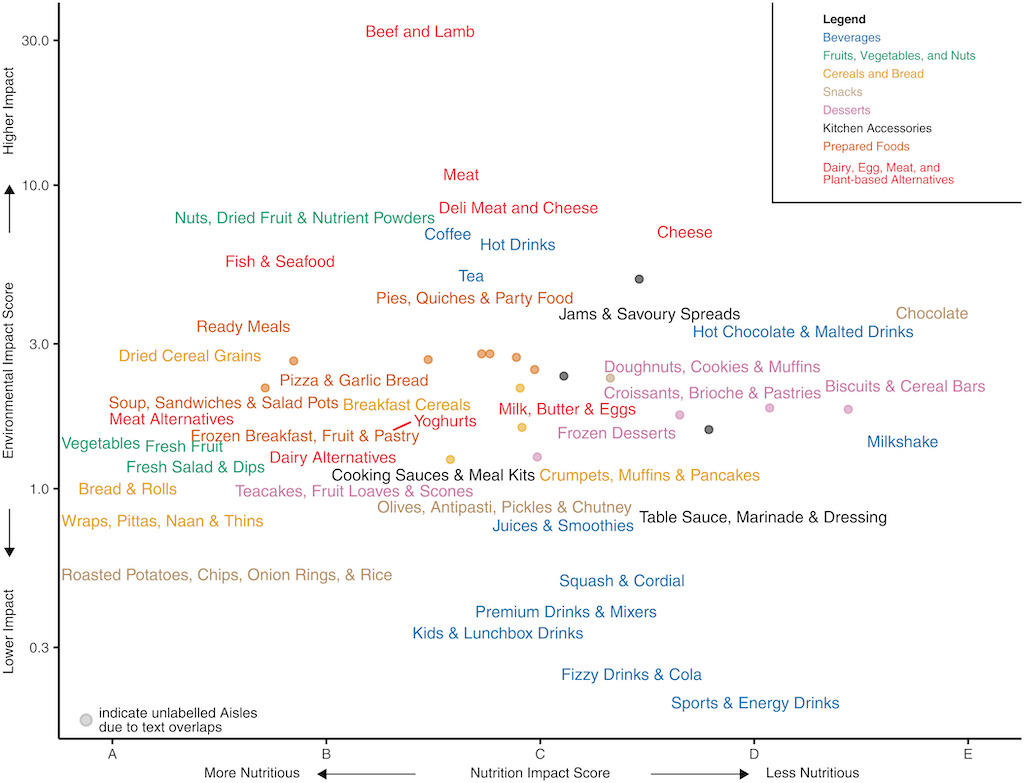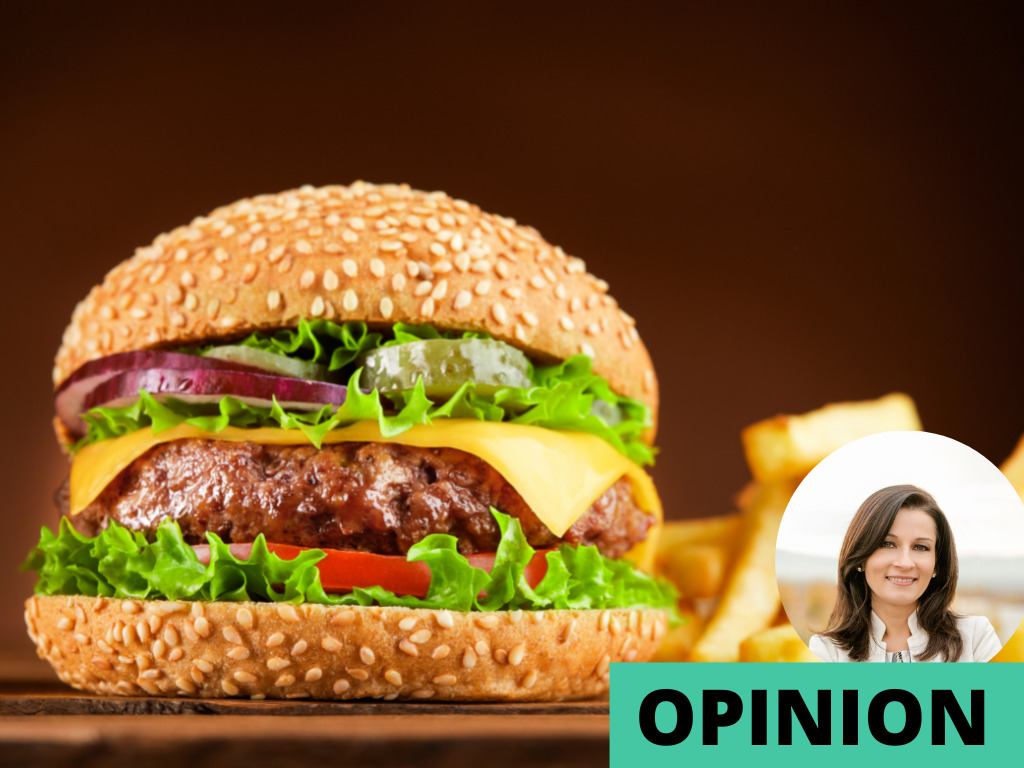6 Mins Read
Notes From the Frontlines of the Sustainable Food Movement – a new opinion column by Irina Gerry
Critics say plant-based burgers aren’t a health food and are a false solution in the fight to reduce food emissions. Are they right?
Plant-based meat has become the subject of increasingly intense debate. On one hand, plant-based burgers by startups like Impossible Foods and Beyond Meat are trying to make headway with meat lovers touting their beefy taste and climate credentials. On the other, the real beef fans are firing back with tradition and naturalness, undergirded by our cultural devotion to meat.
It’s political. It’s emotional. It’s tribal. From Fox News pundits to climate scientists to ranchers, everyone is wading into the great beef debate. So, do plant-based burgers deserve our love or are they an overhyped Silicon Valley invention about to go down?
Are they better for the environment? Yes.
Plant-based meat alternatives beat conventional beef by a long shot. Given that beef tops the charts in emissions, land use, and fresh water use among all foods, as well as livestock farming being the leading driver of deforestation and biodiversity loss, it is not hard to see that just about any plant-based alternative would be a dramatic improvement.
For example, compared to conventional ground beef, the Impossible Burger reduces environmental impacts across every critical category, requiring 87% less water and 96% less land, and producing 89% fewer GHG emissions and 92% less aquatic pollutants.
But, aren’t these burgers made from soy and other industrial monocrops, which are bad for the environment? The amount of soy protein, and other edible inputs, going into this burger are far lower than is required to produce an equivalent beef burger.
Raising cattle for food is incredibly inefficient. It takes 100 calories of feed to get 3 calories of beef. In the US, we use 65% more productive agricultural lands to grow crops (like corn and soy) to feed farmed animals than we do for all other foods we eat directly. There is likely more indirect soy in your beef burger than in the plant-based one. In fact, 77% of soy globally is used for animal feed, and only 7% is consumed by humans. Livestock farming, and its growing demand for soy feed, is the leading driver of deforestation in the Amazon. But wait, isn’t regeneratively grazed beef good for the planet? Many passionate ranchers promote regeneratively grazed beef as the climate solution, insisting that when done properly, grazed cattle can restore degraded soils and sequester carbon. First, this is not what people eat today, because more than 99% of beef is not regeneratively grazed. Second, regenerative agriculture lacks proper definition and standards, making it impossible to know whether beef marketed as regenerative or low carbon is actually better, or how it stacks up for measurements beyond carbon such as land use, water use, deforestation or biodiversity. Finding this magical climate friendly beef will send you scouring the internet, deciphering dubious marketing claims, and air freighting expensive beef from a handful of small farms, likely negating your effort at a lower carbon footprint. Third, even after decades of research, there is still a lot of uncertainty around the scalability, durability and overall climate impact of regenerative grazing outside of very specific degraded cropland conversion examples, making it more of a niche proposition rather than a scalable climate solution.
Are they better for the animals? Yes.
No matter how you view the concept of humans eating animal meat, industrialized animal agriculture is a far cry from the original hunter’s way of killing animals for food. In the US alone, we slaughter over 33 million cattle and calves annually, and 70% of them are raised in factory farms, in conditions that would make most meat lovers cringe. Nearly 99% of chickens, pigs and turkeys are raised in factory farms. There is nothing humane or natural about the way we industrially farm animals for food.

Are they better for your health? Probably.
Consumers are gravitating towards plant-based foods primarily because of their health halo. There is no doubt that a whole-food plant-centric diet is best for our health, but most of us also love a burger once in a while.
The Impossible burger is plant-based. It is a savory, chewy, indulgent treat, high in calories and fat. Wonderful with fries on the side. Its healthfulness depends on your point of reference. Is it better than a kale salad? No. Better than its animal-based counterpart? Probably yes, but that doesn’t make it a health food.
It is a processed food with a relatively long ingredient list. Whole unprocessed plant foods (veggies, legumes, nuts and fruit) are better for our health, but they just don’t deliver the same eating experience that a beef burger does, so I’m ok with a less-than-perfect option for this particular occasion, assuming this is a small part of a diet rich in whole plant foods.
Despite the processing, I believe a plant-based burger is still a better option for my health based on initial studies and given that red meat is associated with a number of health risks, such as heart disease, diabetes and cancer. Evaluating healthfulness of any given food can be complex, and will largely depend on which specific plant-based burger you choose. For example, Impossible beef has no cholesterol, is lower in saturated fat and higher in iron, plus it contains 5g of fiber, which is critical for gut health, while matching beef on protein and vitamin B12 content. It is made with soy, which may be an issue for some. Good news is that options abound from soy-based Impossible, to pea-based Beyond, to organic minimally processed black bean options to suit any taste and dietary preference. The overall assessment of available research leads me to conclude that plant-based meat is still a better option compared to beef, especially if we cross-tabulate environmental impact with nutrient availability.
Are they a false solution? I don’t think so.
Wouldn’t it be better to convince people to eat more whole plant foods, instead of attempting to replicate the less-than-healthy burger? I support the effort wholeheartedly. For years, health, climate and animal rights groups have been beating the drum of whole plant foods, with limited success. Meat is so deeply ingrained in our culture and eating habits, that such a massive dietary shift has not occurred. In fact, the world keeps eating more meat. We are out of time and urgent action on climate is needed. We must reduce the massive environmental footprint of livestock immediately, and that requires deploying multiple solutions at the same time. That should include health education, subsidies and policies targeted at increasing vegetable and fruit consumption, behavioral nudging, and direct substitution with plant-based or cell-based alternatives.
The plant-based meat innovation strategy is grounded in the belief that it is easier and faster to give people a more sustainable, high fidelity beef analogue than to drive a radical habit change. Much like it is easier to transition people to driving electric cars, than to walking, biking or taking public transport, given the habits and logistics of modern lifestyles.My hope is that a clear understanding of the full impact of beef production on climate, animals and health would lead most of us to significantly reduce our beef consumption, whether it is by choosing whole plants or plant-based meat alternatives. Because with the growing global population and the projected increase in meat demand, we have no hope of meeting the +1.5C degree global warming targets if we stay with the status quo.
Lead image of Impossible Foods burger courtesy of Canva.





